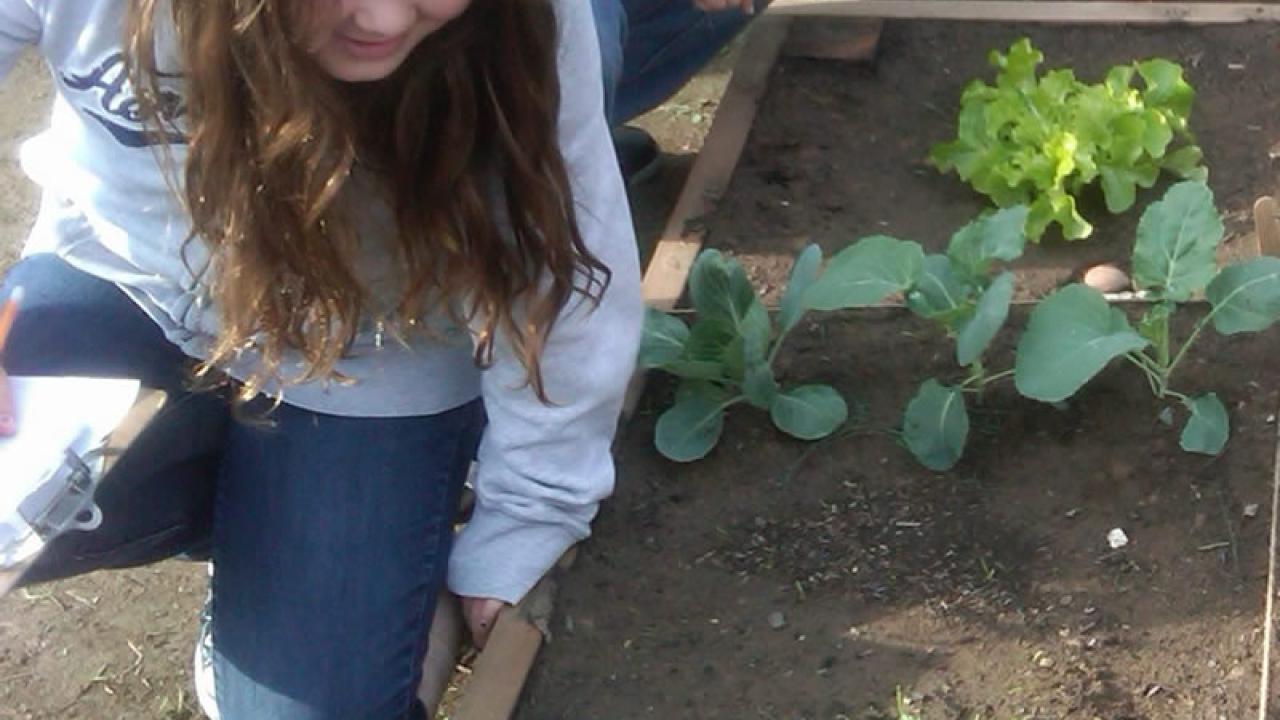
Shaping Healthy Choices Program featured as policy-relevant UC research case study in UC Global Food Initiative Research to Policy report
The UC Global Food Initiative Research to Policy Subcommittee hosted a workshop July 20 on Leveraging Research for Food and Agriculture Policy. For the workshop, the organizers assembled policy-relevant UC research case studies, including a section on the Shaping Healthy Choices Program shown below.
Making Good Choices Stick: School-Based Programs to Learn About Healthy, Local Food
Child obesity threatens to affect the health of millions of people as they grow up. But humans enjoy sugar, salt, and fat – so simply offering healthy food options is not enough to motivate children to make healthy choices. At the same time, imposing restrictions rather than encouraging children to make their own healthy choices can have long-term negative implications.
As part of the Shaping Healthy Choices Program (SHCP), a UC Davis and UC Cooperative Extension team experimented with school-based programs for healthy, local food options.
They started with nutrition education, events, and promotion, including healthy cooking activities that linked agriculture, food preparation, and nutrition. These programs helped children become familiar with and connected to the variety of food choices they truly have. To ensure that healthy fruits and vegetables were available, the team provided technical support for school gardens, support for increased fresh produce in the school cafeteria, and local grower and distributor connections to encourage regional sourcing. Family and community partners bought in, working to establish school wellness policies.
The school-based nutrition education program resulted in fewer overweight and obese children than a comparison group. Preliminary analyses showed that children classified as overweight or obese dropped from 56 percent to 38 percent during the one year SHCP was implemented in Sacramento County. The success of the SHCP in promoting health and preventing obesity enabled participating schools to sustain lasting improvements for the school community.
Preliminary analyses showed that children classified as overweight or obese dropped from 56 percent to 38 percent during the one year SHCP was implemented in Sacramento County.
Collaboration with a wide array of stakeholders proved key, and it began with shared goals. Despite a time crunch, the researchers and their allies were able to implement a program that has seeded fruitful relationships. “One of the most likely reasons that the Shaping Healthy Choices Program produced such impressive results was the collaboration among many sectors of the school environment,” says Dr. Sheri Zidenberg-Cherr, a UC Cooperative Extension nutrition science specialist in the Department of Nutrition at UC Davis. “That’s teachers, administrators, school nutrition program staff, families, farmers, food distributors, and local business owners. The key to success was that university and school partners shared a common goal, and worked together to create a realistic, coordinated educational program given real-life time constraints.”
Contact:
Sheri Zidenberg Cherr, Ph.D.
Cooperative Extension Specialist
sazidenbergcherr@ucdavis.edu
